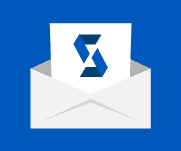Sometimes you need more than work experience and knowledge to know how to crack a software testing interview. Here's what can help you to succeed...
If you have decided to look for a new job or have received an unexpected invitation to interview, the first thing you may want to know about the potential new role are the requirements and responsibilities.

What does the job require?
What will you be doing in this job if you are successful? Do your homework and find out. Revise your understanding of software testing fundamentals, test design techniques, and types of testing because this can significantly increase your confidence and readiness. You might see some tasks in the job description list where you have no experience, but take a deeper look as they may turn out to be quite easy to learn. For instance, you can get yourself ready to take over simple SQL queries within a few days, if you are new to this at the moment. Of course, this isn’t equal to having had experience on a commercial project but it will show that you understanding. Coping with a simple task in the interview and mentioning that you’ve learned the SQL basics by yourself without a project can give you an additional advantage as a self-learner in the eyes of your interviewers.
Learn as much as you can about the company
It may sound too simple, but research the company. This will not only help you answer the common interview question, ‘What do you know about us,’ but it will also enable you to get references and feedback about the company from colleagues and friends. You might be able to glean from them details on the interview process, such as the interview flow, and common questions, or other useful information like their great perks, awful Delivery Manager or unique training program.
Rate your potential jobs in order, bottom to top
If you have several options to consider, start interviewing for the less attractive jobs and then go up the list. With this strategy, you’ll come to your most desired interviews better prepared. Beside that, if you get an offer before the interviews in your most desired companies, you’ll feel more confident and will be able to bid for a better offer in the end.
Prepare answers for the tricky questions beforehand
We all know these tricky questions: ‘What accomplishment you are most proud of?’, ‘What conflict situations have you faced and how did you deal with them?’, ‘Give examples of the process improvements you’ve implemented’ – getting prepared with the answers will let you bring your advantages to the table, even in a potentially stressful interview situation.
Dress well, but feel comfortable and confident
Even though most companies hiring software testers don’t have a strict dress code, first impressions still matter. What you wear can really affect your mood as well as your image, in the eyes of the interviewers but the general advice is to wear clothes that make you feel confident. Different companies tend towards either business or casual attire, and it’s good to learn about their preferred style beforehand. Anyway, the common rule is that being overdressed for the position is better than underdressed. A useful tip is to dress for a position one step higher than you are applying for.
Make small talk
An interview is a two-sided process, and both parties may feel awkward at first. When you make small talk, attention is switched to neutral things and away from the upcoming interview, which can help deflect nerves when you first meet. At the same time, you start to building a connection and find some commonality with your interlocutor. When the interview starts properly, feeling easy and relaxed (but still collected) during the interview, enables you to show more of your advantages and make them shine brighter.
In a remote interview, focus on the task instead of the impression you make
Remote video interviews – using Teams or Zoom, etc. – are becoming increasingly popular, as more especially tech companies use a dispersed workforce. Because the interview environment lacks the benefits of a genuine face to face meeting, every chance you get to impress needs to be able to fit onto the screen. This can lead people to overthink how they are coming across to those conducting the interview. When this happens, it becomes harder to apply all your senses, instincts and acquired wisdom to the job in hand. So if you find yourself in a remote interview, be sure to place your full concentration on solving the tasks you are presented with. This is how you will make the best impression.
Think aloud
Whenever you face a tricky task you are not sure how to solve immediately, it’s always better to voice your thoughts and ideas out rather than keep silent and end up with a brain freeze.
Try to guess what your interviewers want to find out
Sometimes, an interviewer might ask how you did this or that activity on your previous project, or how you would handle this or that specific case. But the answers you give here really depend on the context. If you think that your previous experience doesn’t give the full picture, feel free to say: ‘On the project I did it this way, but here’s how I’d do it in different conditions/in theory/in an ideal world…’
Don’t hold back on asking questions to help clarify the task. If you are unsure what lies behind the interviewer’s question, you can always rephrase or refine it: ‘Do you mean…’, ‘Are you asking about this, or that?’. This strategy will help you to get a better idea of how to give your best answer, as well as showing that you have the initiative to get to the centre of anything you don’t understand, which is a useful asset for your future employer.
Practice before interviews
To some extent, the result of an interview is a kind of lottery, as you never know beforehand whether you take it or break it. Still, being interviewed is a skill, and after a few attempts you’ll find yourself calm and confident. It is also a process where you never lose. Even if you don’t get that job offer, you get an invaluable experience that will probably help you crack your next interview where you get your dream job.

